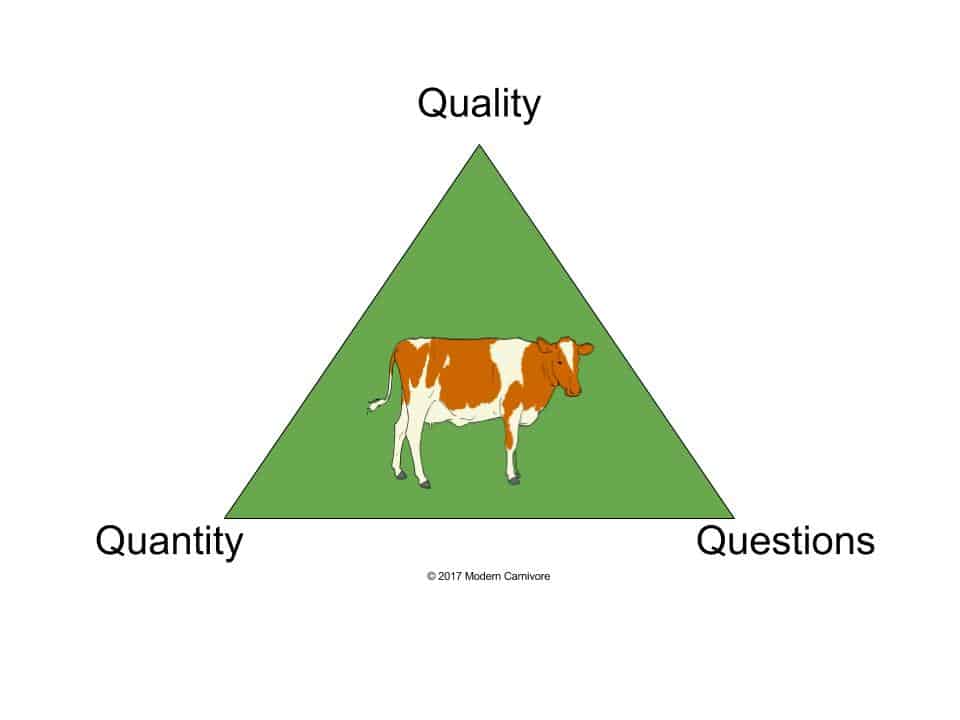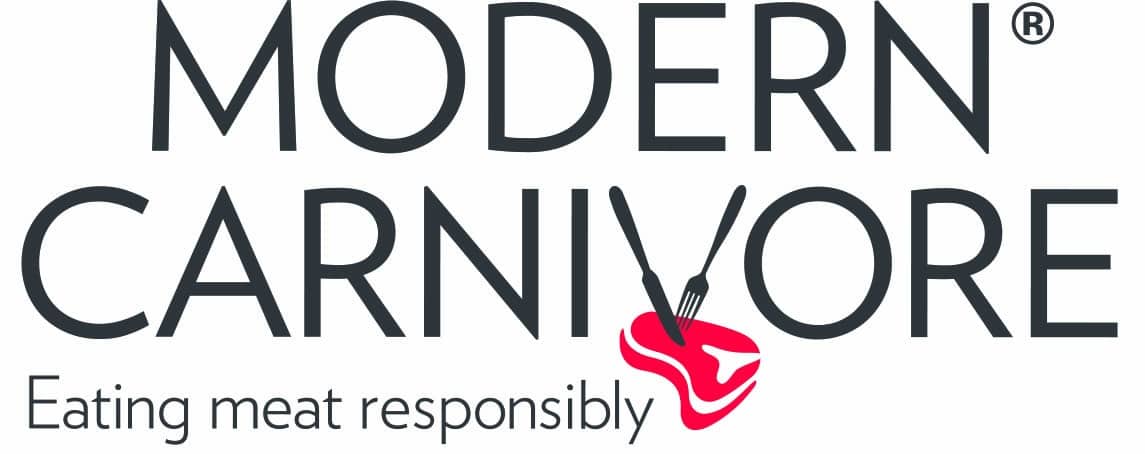Meat is an integral part of a healthy diet. This perspective is held by most, and many prefer to eat “clean meat”.
Given my work I’ve had many people share stories of how they eliminated meat from their diet only to end up dealing with a host of unintended consequences. Often when meat is then re-introduced to their diet their energy returns and health also improves.
Clean Meat
So, if you’re going to eat meat what are the considerations? There is much talk these days about clean meat. But what exactly does the term clean meat mean anyway? Much of the focus as of late is on using this term to describe “cultured meat” or meat made in labs. We’ve often talked about “lean and clean” meat being what comes from responsible ranchers, farmers, and processor operations, or by harvesting yourself through hunting and fishing. The terminology will continue to be refined over time but we have a clear point of view we’d like to share.
The Q3 Model
At Modern Carnivore we like to talk about “The Three Qs“:

Quality
Look for the best quality meats. These are often raw cuts and/or products from animals in your region. They often require fewer resources to raise, process and transport and the new generation of meat producers are often very transparent in their full production. Some slaughterhouses like Lorentz Meats will even invite you in to see their entire operation. In addition to being “cleaner”, the cuts from animals like beef cattle raised on grass are often leaner with more omega-3 nutrients and good fats.
We also encourage more people to try hunting and fishing themselves as an enjoyable way to have a deeper connection with wild places. While the experience is often a means to an end there is the added benefit of eating the highest quality meat that comes from the animals and fish that live in those amazing environments.
Quantity
Reduce the quantity of meat in your diet. The amount of meat consumed by Americans is referenced in different ways by various institutions. The Food and Agriculture Organization of the United Nations states that in 2005 Americans were eating 279.1 pounds of meat annually. This is 154.1 pounds more than the United States Department of Agriculture’s (USDA) recommended 125 pounds of annual protein consumption in all forms of meat, soy, eggs, etc.1
Some studies show a drop-off in the quantity of meat eaten by Americans in recent years, but we have a long way to go if we’re to be aligned with the health and science community recommendations. The benefit of eating a higher quality meat is that they’re often loaded with a greater density of good nutrients. When it comes to high-quality processed meats like salume they are dry-cured versus water-added and that flavor intensity means that a little goes a long ways.
There are many ways to get creative in the kitchen using meat in smaller quantities. For example, fish tacos are a great way to use just a few panfish to make a meal for several people. Here’s a video recipe for panfish tacos from Chef Lukas.
Questions
Ask questions. In recent years people have increasingly been on the lookout for local, organic, free-range, antibiotic and hormone-free food. This is a good thing and we hope people continue to ask questions. Everyone should ask questions about their food, where it comes from and why the producer is proud of it. We all need to take responsibility with food selection and ask questions like:
- “Where are the animals raised?”
- “What are the animals fed?
- “How do you process the animals?”
Quality purveyors of clean meat will know the answers to these questions. If they don’t you’ll be able to find someone else who will gladly do business with you.
Am I A Modern Carnivore?
Meat eaters with an eye for adventure should also ask themselves,”If necessary, could I kill an animal or fish so that I could eat?”, “Does eating an animal or fish that’s lived a full life in the wild sound better than eating meat from our industrial food system?” These are just a couple of questions that more people are asking themselves as they consider the idea of starting to hunt or fish as an adult. If you have more questions like these check out our other stories and sign up to receive the Modern Carnivore newsletter.
1 https://vegetarian.procon.org/view.resource.php?resourceID=004716
